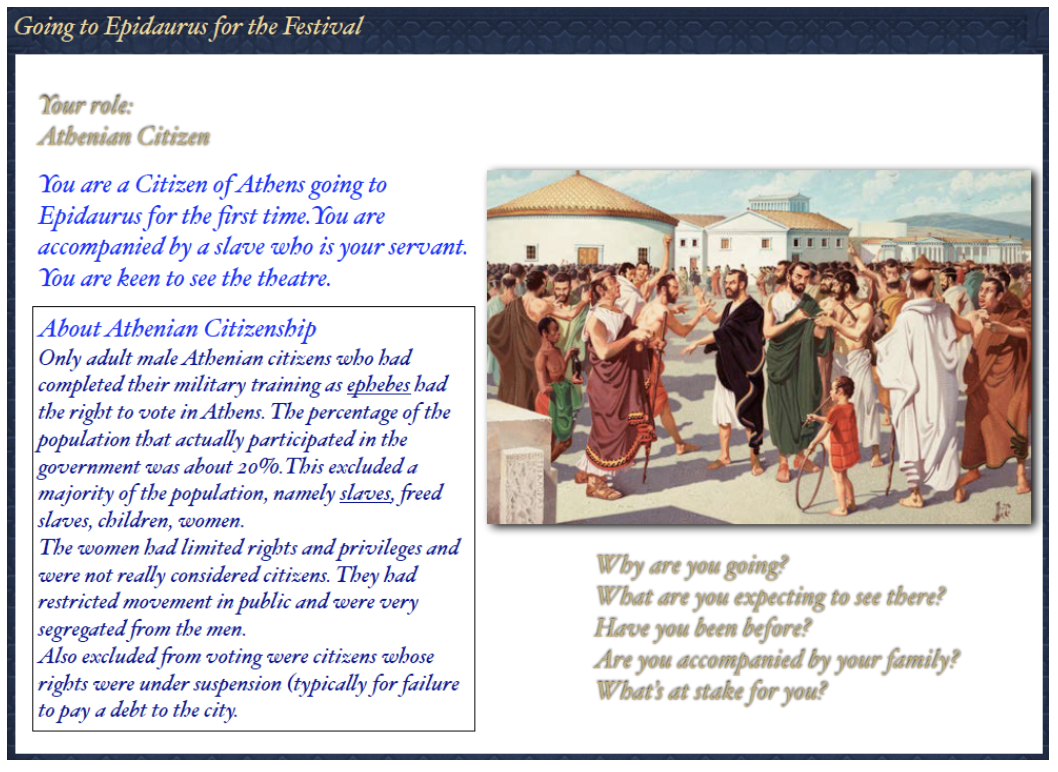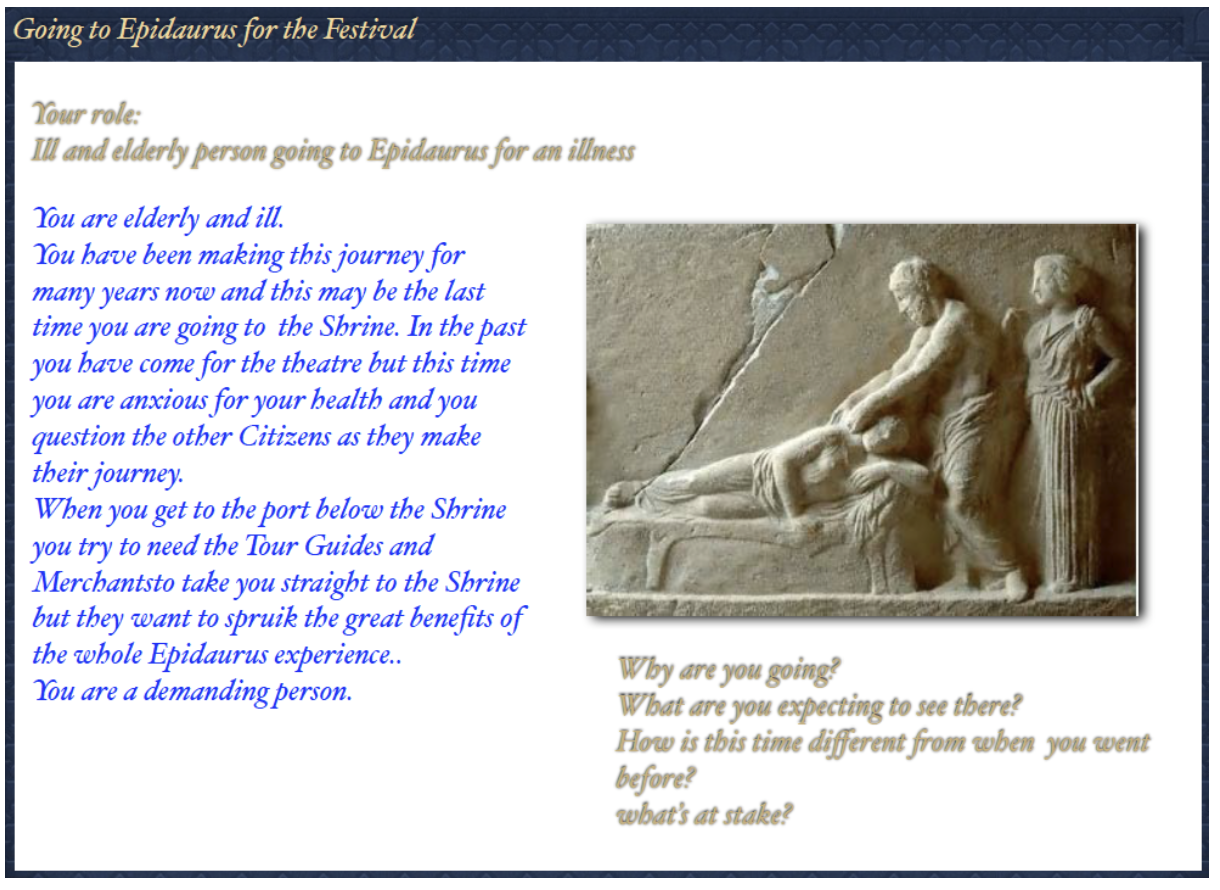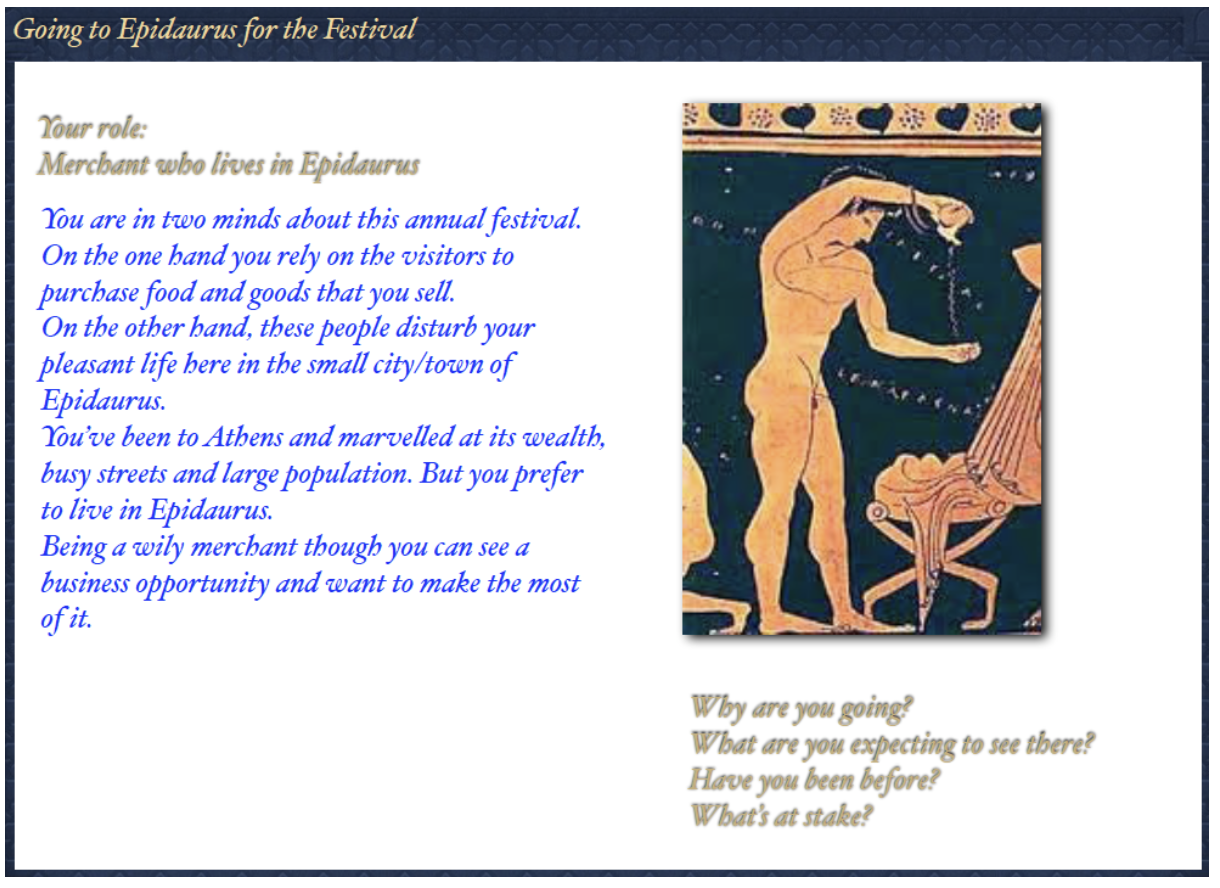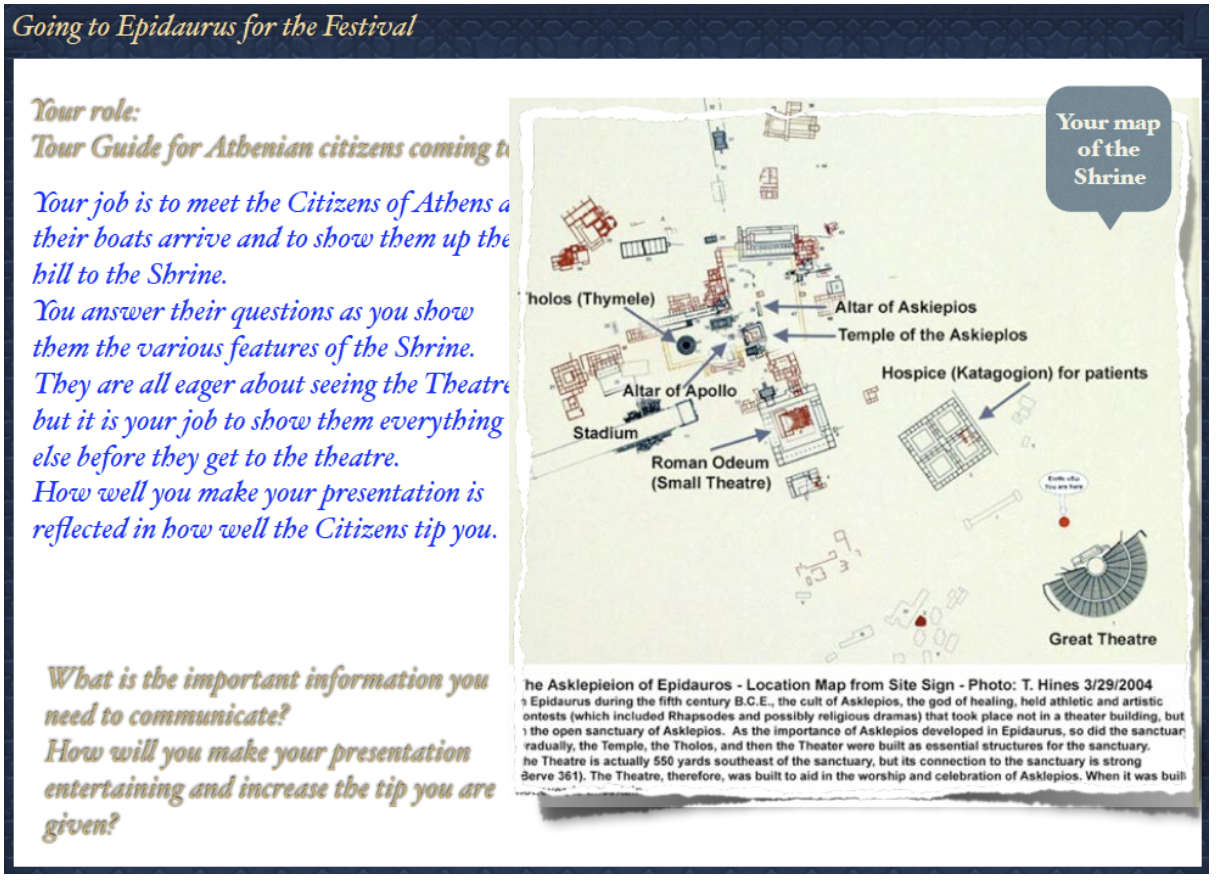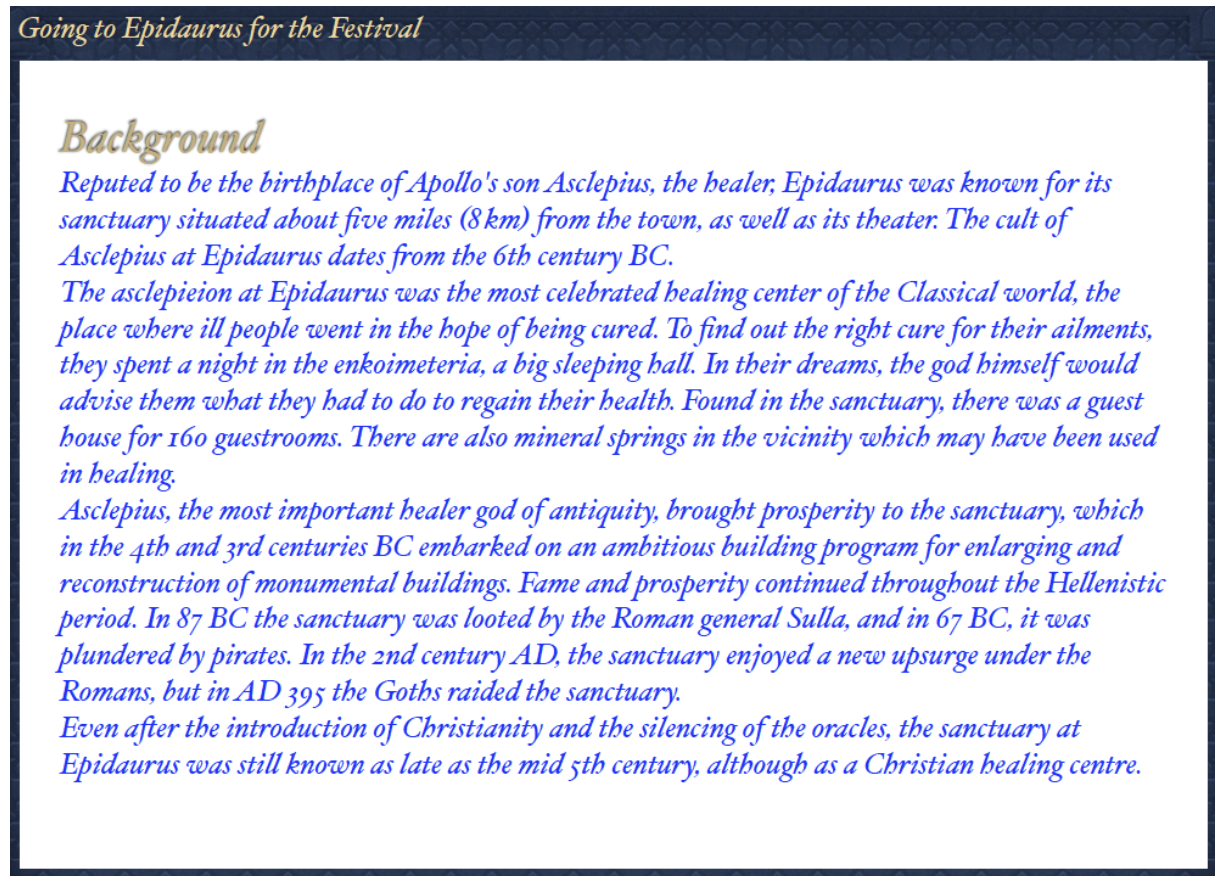Drama Tuesday - First Voice
/How do you teach Theatre History?
One of the perennial problems about fully developed drama education courses is finding ways of engaging students with the drama and theatre of other times and places. We became frustrated with the usual approaches – finding a television documentary and slapping students down in front of 60 minutes. All that sort of teaching encourages is passive engagement. The students who are interested focus; the rest get bored quickly.
Of course, you can ask students to take notes – or fill in a work sheet – but it is still deadly theatre (to steal a term from Peter Brook). The other approach is to send students off to the Library or to do Google searches. The result is always skewed or idiosyncratic viewpoints of a particular author and the perennial problem of “cut and paste”. Where is the development of critical thinking that promotes questioning and, above all, linking to the student’s own practice.
Of all the reasons that we ask students to consider drama of other times and places, is the hope that they will take ideas from the long trajectory of drama and theatre over time and place and apply ideas to their own drama making. It must not be drama knowledge for drama knowledge’s sake.
In my drama teacher education classes at Murdoch University, the concept of these introductions in First Voice were developed into workshops where students took on the roles of, for example, making the journey to Epidaurus for the Festival of Asclipios.
The aim – as always in my drama teaching – is to embody knowledge and learning.



